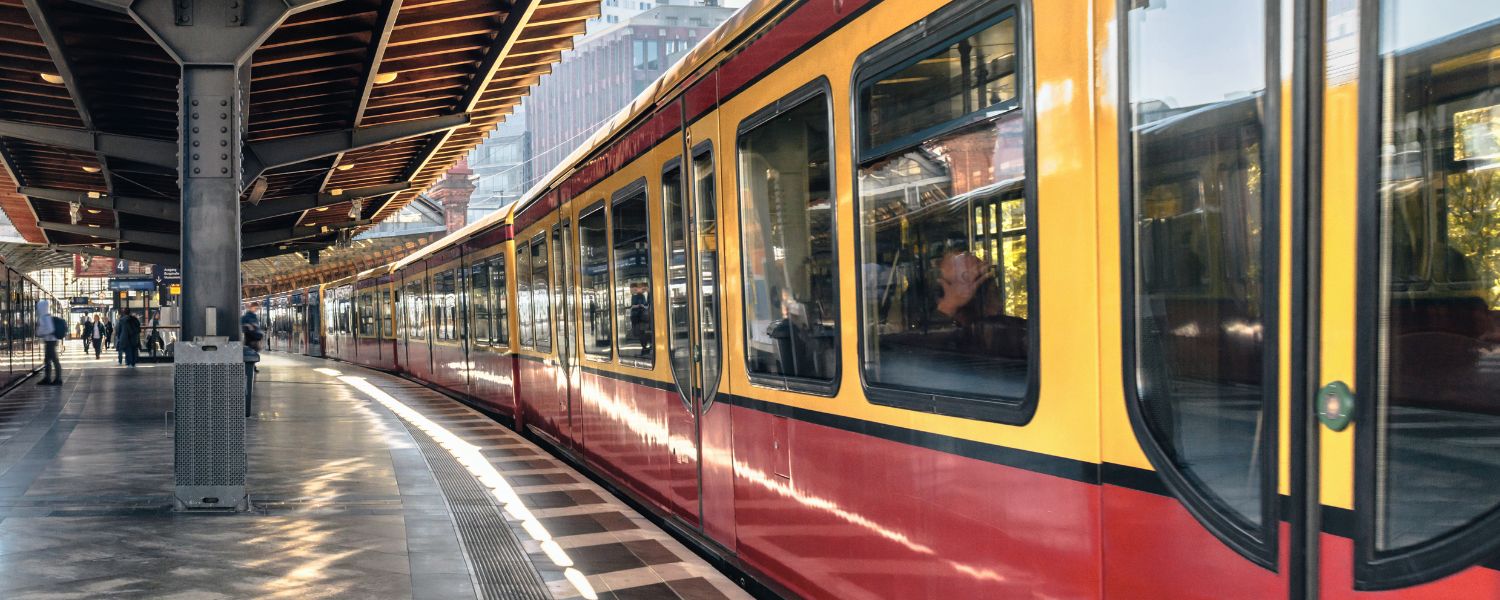Public and religious holidays in Germany are important days that reflect the cultural and religious richness of the country. They are meaningful days that keep the traditions and beliefs of Germans alive and reinforce social unity. Do you know the meaning of public holidays in Germany?
We’ll take a detailed look at the most important public and religious holidays in Germany – days when workplaces are closed and people have the opportunity to relax and spend time with family and friends – and discuss the special meaning and celebration of each one.
When planning holiday periods and cultural experiences in Germany, understanding the significance of these holidays and how they are celebrated is an experience that every visitor and local will enjoy. Here are the meanings of the holidays in Germany!
New Year (Neujahr) in Germany
New Year’s Eve marks the beginning of the new year, which is celebrated in Germany and many other countries on January 1st every year. It is a day of celebration, filled with special parties, food, fireworks and family togetherness. Germans enter the new year with hope and joy and enjoy gatherings with loved ones. New Year’s Eve is considered a symbol of new beginnings and hope.
Women’s Day (Frauentag) in Germany
In Germany, March 8 is celebrated as Women’s Day and is called “Frauentag”. This special day between public and religious holidays in Germany aims to emphasize the social, political and economic rights of women.
In Germany, this day is celebrated with various events, seminars and panels. Women from different sectors of society raise their voices together against inequalities and gender discrimination.
Women’s Day aims to raise awareness about gender equality and women’s empowerment in Germany and provides an opportunity to celebrate women’s rights throughout history and focus on their future struggles.
Labor Day (Tag der Arbeit)
In Germany, Labor Day is known as “Tag der Arbeit” and is celebrated on May 1st. It is a national holiday celebrated around the world to draw attention to workers’ rights and working conditions. In Germany, May Day is usually celebrated with demonstrations, marches and events organized by trade unions, labor unions and different social groups.
Labor Day is an opportunity to celebrate the rights of the working class throughout history and to make efforts to protect and improve workers’ rights. It is also recognized as a day when people from different sectors of society come together to strengthen the spirit of solidarity.
In Germany, May Day is usually peaceful and emphasizes workers’ rights and reminds people of the need for fairer working conditions.
German Unity Day (Tag der Deutschen Einheit)
When we talk about the meaning of holidays in Germany, we cannot not mention German Unity Day. “Tag der Deutschen Einheit,” as it is called in German, is a national holiday celebrating the unification of Germany and commemorating the date of the unification of the country. This special day is celebrated on October 3, 1990, after the fall of the Berlin Wall, which ended the division of Germany into East and West Germany.
German Unity Day is an important national holiday that emphasizes the spirit of unity and solidarity of the German people and celebrates the unification of the country. This date represents an important turning point in Germany’s history and symbolizes that the country is moving forward united and stronger.
Weltkindertag (World Children’s Day)
Weltkindertag is called “World Children’s Day” in German. This special day is a national event to draw attention to children’s rights and children’s welfare. It is celebrated every year on September 20 in Germany and many other countries as a special day for children.
Weltkindertag emphasizes children’s fundamental rights to education, health, safety and happiness and aims to support their future. This day is often filled with activities, games and festivals for children and emphasizes the importance and interest of children in society.
In Germany, this children’s holiday is not celebrated as enthusiastically and nationwide as the April 23rd National Sovereignty and Children’s Day in Turkey, with more limited participation. This day is a holiday in the German state of Thuringia (Thuringia).
German holidays explained: Religious holidays in Germany
While we are talking about the meaning of holidays in Germany, we should also mention religious holidays.
Feast of the Epiphany (Heilige Drei Könige)
The Feast of the Epiphany, or “Heilige Drei Könige” in German, is a religious holiday celebrated in Germany. According to Christian belief, it celebrates the visit of the Three Holy Kings (Baltasar, Melchizedek and Gaspar) from the East to honor the birth of Jesus. The Feast of the Epiphany is celebrated every year on January 6.
In Germany, the Heilige Drei Könige is of great importance, especially in Catholic areas. This day is usually marked by religious services, church services and special celebrations. Children dress up in costumes representing the Three Holy Kings and make home visits to bless homes. This tradition officially ends the Christmas period and is considered a time to put away Christmas decorations.
The Feast of the Epiphany is recognized as a public holiday in many states in Germany. Therefore, many workplaces and schools celebrate this day as a holiday. In addition, this day is often celebrated with various festivals, street festivities and outdoor events.
Heilige Drei Könige is considered both a religious holiday and a traditional day of celebration in Germany, emphasizing Christian faith and tradition.
Good Friday (Karfreitag)
Good Friday is one of the most important Christian religious days in Germany and is called “Karfreitag”. It is a day when Christians commemorate the crucifixion of Jesus and mourn his death.
Good Friday is considered a national holiday in Germany, so workplaces and schools are usually closed. In Germany, this day is filled with religious ceremonies, services and worship. In addition, some people take the opportunity for silence and contemplation, while others spend the day gathering with their families.
Good Friday is considered both a religious day and an important holiday in Germany, when people have the opportunity to come together and relax.
Ascension Day (Christi Himmelfahrt)
In Germany, Ascension Day is called “Christi Himmelfahrt” and is an important religious holiday based on the Christian faith. It is celebrated on varying dates each year and usually falls in mid-May. Ascension Day is based on the belief that Jesus ascended into heaven and is of great religious significance for Christians.
In Germany, Ascension Day is usually celebrated with religious services, church visits and religious events. In addition, this day is often an occasion for families to get together and enjoy the religious holiday.
Many workplaces and schools recognize this day as a holiday, so people use this opportunity to relax and spend time with their families. In some regions, the day is also celebrated with community events such as outdoor activities, festivals and fairs.
In Germany, Ascension Day is considered both a religious day and a holiday that strengthens family unity.
Pentecost (Pfingstsonntag)
Pentecost, or “Pfingstsonntag” in German, refers to the second day of Pentecost (Pentecost Sunday) in the Christian world and is considered to mark the descent of the Holy Spirit and the beginning of Christianity, which took place 50 days after the death of Jesus Christ.
Pentecost is celebrated on different dates each year and usually falls in late May or early June.
In Germany, Pentecost is usually celebrated with religious services, church services and religious events. It can also be an occasion for families to get together and organize special family gatherings, such as lunch or dinner.
In addition to its religious significance, the holiday may be celebrated in some regions with outdoor events, festivals and fairs, as it coincides with the season of spring and greenery. In Germany, Pentecost is recognized both as a religious day and as a holiday that emphasizes family unity and social solidarity.
Pentecost Monday (Pfingstmontag)
Pentecost Monday, or “Pfingstmontag” in German, is the day after the Christian holiday of Pentecost (Pentecost Sunday). Pentecost is an important day in Christianity to celebrate the descent of the Holy Spirit and the foundation of the church. In Germany, Pentecost Monday is celebrated on different dates each year and usually falls in late May to early June.
Pentecost Monday is a public holiday in Germany and many workplaces and schools recognize this day as a holiday. Many people therefore use this day to relax and spend time with family or friends.
The holiday can be celebrated with outdoor activities, picnics, nature walks or special events. In some regions, Pentecost Monday is also marked by traditional festivals and fairs. In Germany, the holiday has a religious significance and offers an opportunity to enjoy the beauty of spring and increase social interaction.
Catholic Christmas (Fronleichnam or Corpus Christi)
Catholic Lent, or in German “Fronleichnam” or “Corpus Christi,” It is an important religious holiday in Christianity, commemorating the body and blood of Jesus, the symbol of the Eucharist (the Holy Sacrament). The feast is celebrated on varying dates each year and usually takes place in late May or early June.
In Germany, Corpus Christi is of great importance, especially in Catholic areas. The day begins with religious rites and church services and is often followed by religious processions, so-called processions, and street festivals.
Church leaders, Catholic parishioners and local communities use this holiday to come together to express their religious devotion and faith.
Corpus Christi is considered an official holiday in many states in Germany, so many workplaces and schools recognize this day as a holiday. The holiday can also be spiced up with art and cultural events, street festivities and traditional festivals.
In Germany, Corpus Christi is considered both a religious and a communal holiday and is an opportunity to highlight the Catholic faith and traditions.
Assumption of Mary (Mariä Himmelfahrt)
The Assumption of Mary, called “Mariä Himmelfahrt” in German, is a religious festival celebrating the day of the bodily ascension of the Virgin Mary according to the Catholic faith. The feast is celebrated annually on August 15th and is of great importance to Catholics in Germany.
The Mariä Himmelfahrt begins with religious services and church services. The Catholic community uses this day to express their respect for the Virgin Mary and to commemorate her life and especially her ascension after her death. Special services are held in churches and statues or images of the Virgin Mary are specially decorated.
Since this religious holiday is also a public holiday in many German states, many workplaces and schools take the day off. In addition, the day is often celebrated with community events such as outdoor activities, marches and markets.
The Mariä Himmelfahrt is recognized in Germany as both a religious holiday and a public holiday and is an opportunity to emphasize the Catholic faith and devotion to the Virgin Mary.
Reformation Day (Reformationstag)
Reformation Day, or “Reformationstag” in German, is a religious holiday in Germany celebrated annually on October 31. This day is linked to the day in 1517 when Martin Luther nailed the 95 Theses to Wittenberg Cathedral and started the reform movement in Christianity. This event marks the beginning of the Protestant Movement against the Catholic Church.
Reformation Day is of great importance, especially in Protestant communities, and is recognized as a public holiday in many states in Germany. This religious holiday is celebrated with church services, liturgies and special events. Special services are held in churches in memory of Martin Luther and other Reformation leaders.
At the same time, Reformation Day emphasizes the importance of religious freedom and freedom of belief in Germany’s history. For this reason, the day is also celebrated with many social events.
Outdoor events, lectures, panel discussions and cultural events are all part of this religious holiday. In Germany, Reformation Day is recognized both as a religious holiday and as a day of historical and cultural significance.
All Saints’ Day (Allerheiligen)
All Saints’ Day, or “Allerheiligen,” in German. It is a religious holiday celebrated by the Catholic Church. It is a day of remembrance of Christian saints and martyrs. Allerheiligen is celebrated in Germany every year on November 1st.
This religious holiday is held in high esteem by the Catholic community and is recognized as an official holiday in many Catholic states. Allerheiligen is usually celebrated with church services and special liturgies. Churches pray for saints and martyrs and remember their lives and example.
At the same time, Allerheiligen is an important day for visits to cemeteries. Many people spend this day visiting the graves of their loved ones and decorate the graves. In some parts of Germany, this religious holiday is followed by another holiday called Allerseelen (Day of the Dead), a day set aside to remember the dead.
Allerheiligen is an important religious holiday in Germany, reflecting the Catholic faith and expressing respect for the saints.
Day of Prayer and Repentance (Buß- und Bettag)
The Day of Prayer and Repentance, or “Buß- und Bettag” in German, is a special religious day and public holiday in Germany. It is used by the Catholic and Protestant communities for religious penitence, prayer and worship.
This religious holiday is celebrated every year on the last Wednesday of November and is generally recognized as a public holiday in some states of Germany.
This day is seen as an opportunity for members of the Catholic Church and the Protestant Church and represents a time set aside for personal repentance, prayer and worship. This religious holiday provides an opportunity for people to make an inner connection, repent for past mistakes and refocus spiritually.
Christmas Day (Weihnachtstag)
And lastly when it comes to the meaning of holidays in Germany, let’s have a look at the Christmas Day. Christmas Day (Erster Weihnachtstag) and Christmas Day (Zweiter Weihnachtstag) are the two most important days of Christmas in Germany and many other countries. In the Christian world, these two days celebrate the birth of Jesus Christ and also have a social festive character.
Christmas Day is celebrated on December 25th and marks the birth of Jesus for Christians. In Germany, it is usually a day for families to get together and share special meals and gifts.
Christmas services are held in churches, emphasizing the birth of Jesus and the meaning of Christmas. The Christmas tree and Santa Claus are also important symbols of Christmas Day in Germany.
The day after Christmas is celebrated on December 26 and is a public holiday in Germany. It is a day for families and friends to get together and enjoy Christmas. Like Christmas Day, Christmas Day is also considered a day of special meals and celebrations. It is also celebrated by religious communities with special events.
Christmas Day and Christmas Day after Christmas are the most important days of the Christmas season in Germany and are filled with an atmosphere of communal unity and love. These two days not only have a religious meaning, but also emphasize family unity and offer the opportunity to spend special moments with loved ones.




